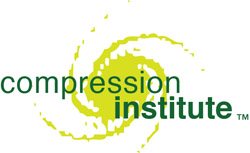 When the Compression Institute began we had the notion of forming learning groups of for-profit companies that could start a learning journey together toward a much bigger view of how to live better using much less. However, very few companies could see where that might lead.
When the Compression Institute began we had the notion of forming learning groups of for-profit companies that could start a learning journey together toward a much bigger view of how to live better using much less. However, very few companies could see where that might lead.
Our conclusion is that to be effective, we have to create larger system learning labs, real arenas that work organizations can relate to. A term for this is an “issue learning group.”
Materials limitations and environmental messes are global. If globally connected, we can perceive global issues, but none of us take global action. Instead, we may work toward global solutions by taking local or regional action. The core idea of issue learning groups is to relate to a bigger system, but not so big that we can’t address realities.
One example is the OS1 cleaning organizations that have been described in prior issues. These are separate organizations that clean large buildings, but collaborate finding better processes for cleaning them – better cleaning using fewer resources, and less harmful cleaning agents. OS1 cleaning is a great practical start on a bigger issue, improving health inside the built environment, building by building. And of course that relates to even bigger issues like reducing water and energy usage in an area.
We have a couple of nascent “water groups.” The idea is to define and address water issues of a particular watershed serving a city or other area. Water conservation is the focus of many other initiatives, but we know of no others that begin with a long-term assessment of overall water sources and uses within a watershed that serves that district. Of course, how to become resilient to both record floods and droughts is the core issue in each case.
To be addressable, issues need to be community or region-based, so that we can dig into the complex particulars of that area. Water use is a hot issue around the world, and many organizations are addressing it, but so far was we know, no one else is proposing a big system, long-term approach starting with the entire relevant watershed.
But water is not the only issue around which a group may initially form. Others are community health, energy use, safety and security, materials usage (reuse), and ecology.
And one more time, what is the purpose of an issue learning group? Determining how a community can live better using a lot less stuff: better living; smaller footprints, beginning in the short term, but developing into a huge shift two or three decades in the future.
